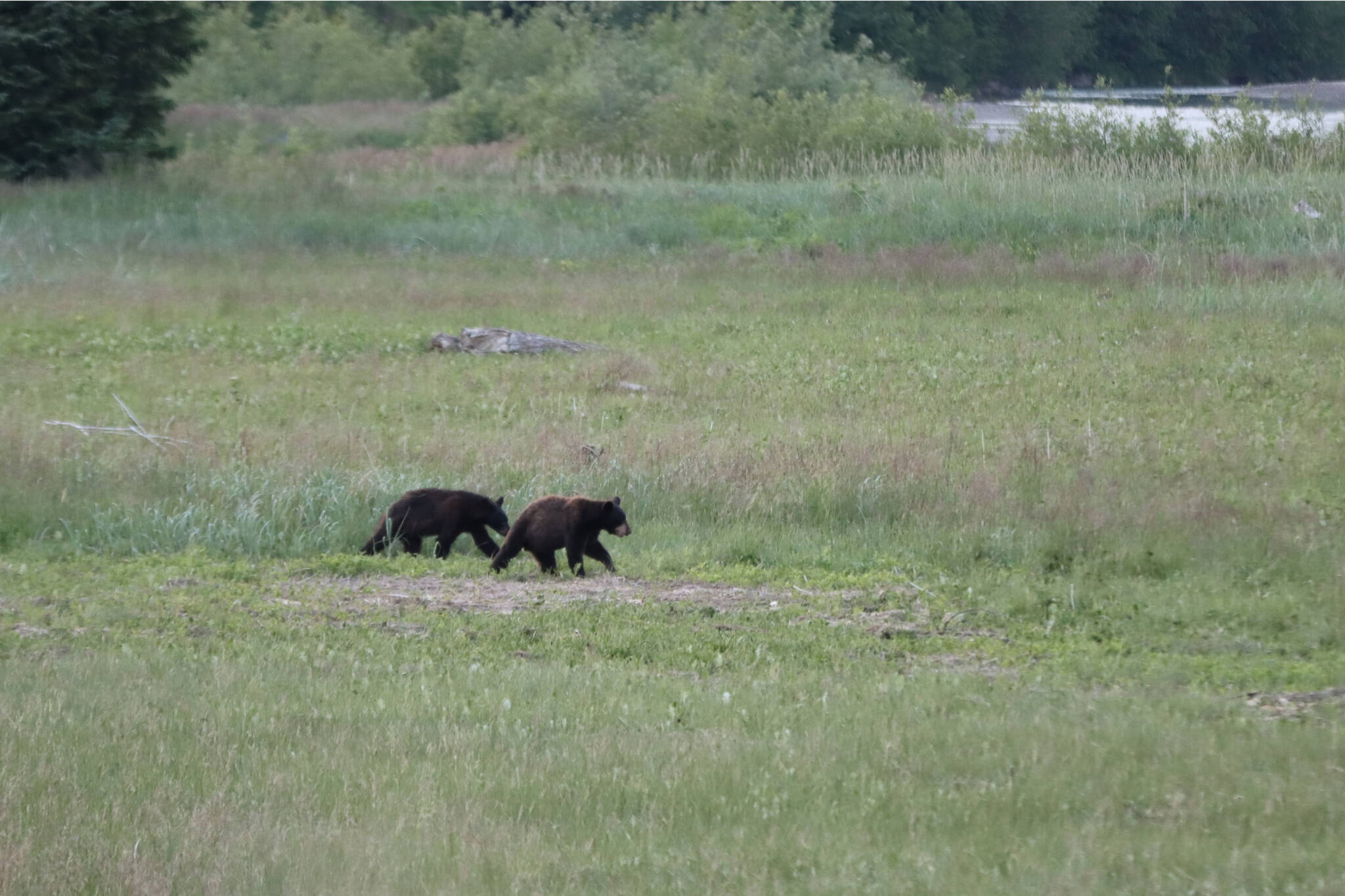A black bear cub in Southeast Alaska was sick last month with bird flu, according to the Alaska Department of Fish and Game. The cub found in Bartlett Cove, Glacier Bay National Park and Preserve, is only the second instance of highly pathogenic avian influenza being diagnosed in a bear amid an ongoing outbreak.
“The (highly pathogenic avian influenza) passes really easily to poultry, but mammals aren’t really susceptible to it,” said Dr. Kimberlee Beckmen, wildlife veterinarian for the department. “It’s difficult to get, but we suspect the cub probably ate a bird that died from avian influenza.”
Beckmen said the cub being a young, small animal with a relatively weak immune system likely contributed to it ultimately becoming ill. The detected illness is not a sign highly pathogenic avian influenza is likely to further spread to other animals or people, Beckmen said.
“This particular strain, people are pretty much immune to it,” she said.
After the virus was first detected in an adult female black bear in June in Quebec, Canada, state veterinarian Dr. Robert Gerlach and Beckmen have tested scavenging animals for it. So far they have only detected the virus in just two other animals, red foxes in Unalaska and in Unalakleet.
Beckmen said that comes despite highly pathogenic avian influenza “really hammering” the state’s wild bird population.
“If it was more transmissible to mammals we would’ve picked it up before,” she said.
The diagnosis of the Bartlett Cove cub comes after people, including a park biologist working in Glacier Bay, noticed in October one of three black bear cubs accompanying a sow was having difficulty walking, according to the fish and game department. The cub was eventually abandoned by the sow. Shortly after a biologist picked up the cub, it began suffering seizures – as did the Canadian bear previously diagnosed with the illness – and was euthanized by an area biologist.
Further examination of the cub showed no signs of trauma, so samples were collected and sent to diagnostic laboratories to rule out usual seizure-causing disorders, including rabies and canine distemper, according to the fish and game department.
The virus that causes highly pathogenic avian influenza was detected in multiple samples at Washington Animal Disease Diagnostic Laboratory and Cornell University Animal Health Diagnostic Center, according to the fish and game department. It was confirmed by the National Veterinary Services Laboratory this week.
The particular strain of bird flu poses a “very low” risk to humans, according to the Centers for Disease Control and Prevention. Only one person in the U.S. and three people in the world have been diagnosed in the outbreak, according to the CDC.
Beckmen noted the U.S. man who was diagnosed did not become ill after the virus was detected in his nose.
There have been no human infections reported in Alaska, according to the state Department of Health.
However, health officials advise hygiene when handling sick animals or butchering wild animals for consumption.
“There’s low-transmissibility to people, but you never want to be harvesting or handling animals that appear to be sick,” Beckmen said, noting the sick bear cub was visibly ailing.
Poultry should be cooked to an internal temperature of 165 degrees Fahrenheit and meat to 145 degrees to avoid risk of infection.
“If you cook the meat there’s no risk of this virus or any of the bacteria causing a problem,” Beckmen said.
• Contact Ben Hohenstatt at (907)308-4895 or bhohenstatt@juneauempire.com. Follow him on Twitter at @BenHohenstatt.
If you see sick or dead wildlife
Alaska Department of Fish and Game reminded people they should report sick or dead wildlife to the nearest department office or online via the link: https://www.adfg.alaska.gov/index.cfm?adfg=distressedwildlife.main. Morbidity or mortality of domestic poultry can be reported to the Office of the State Veterinarian (907) 375-8215.

